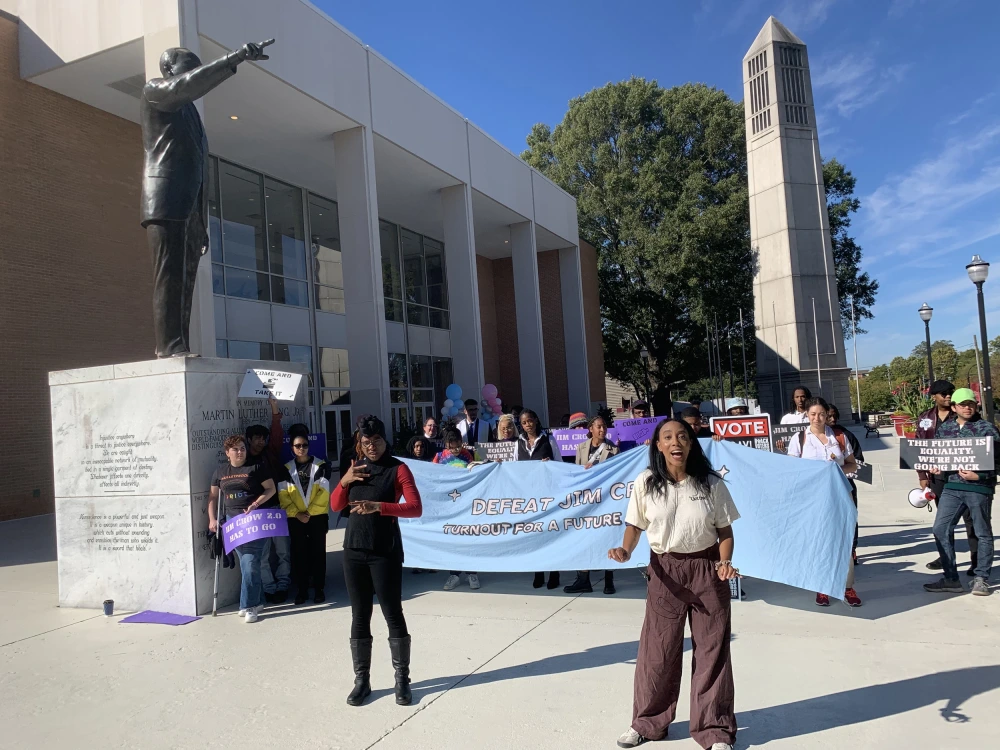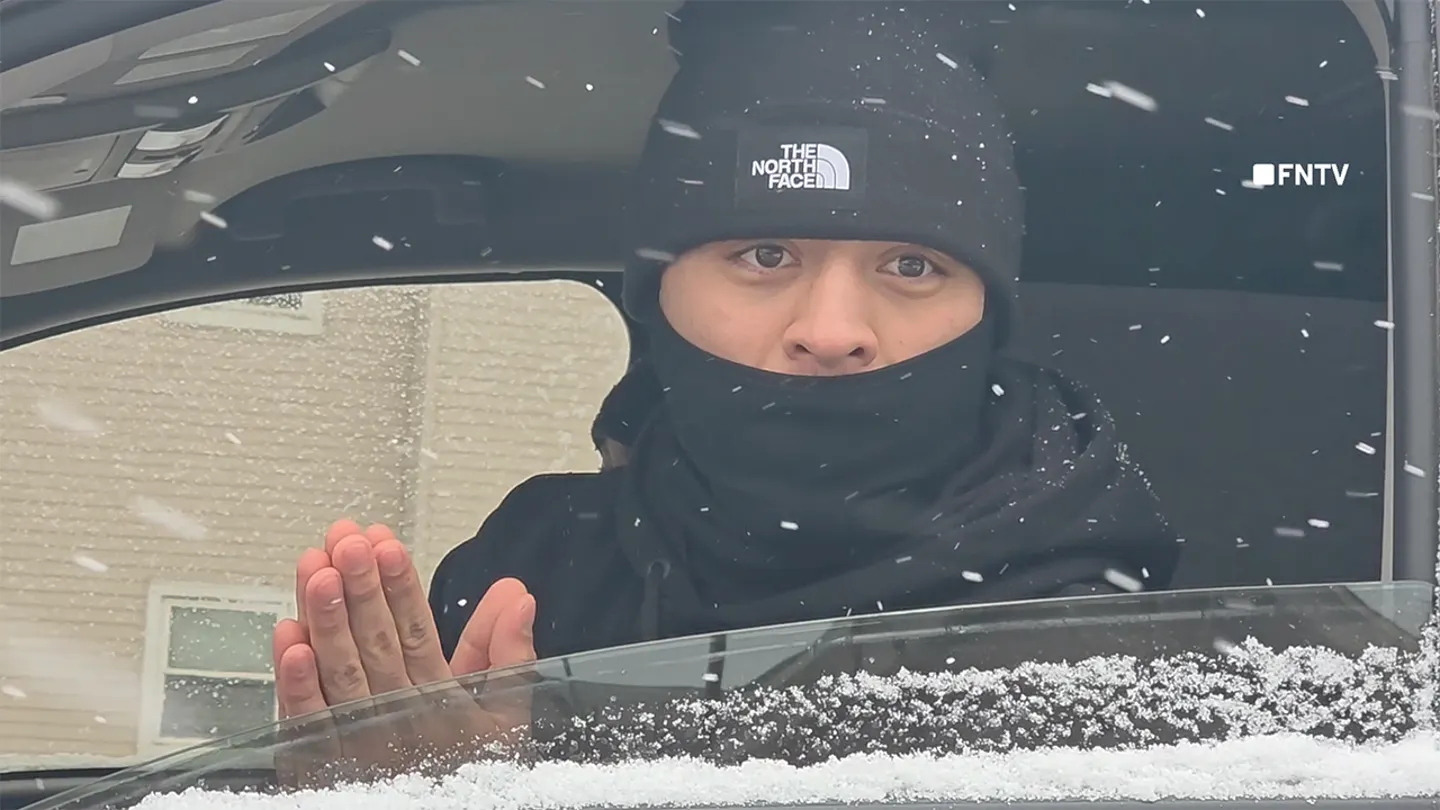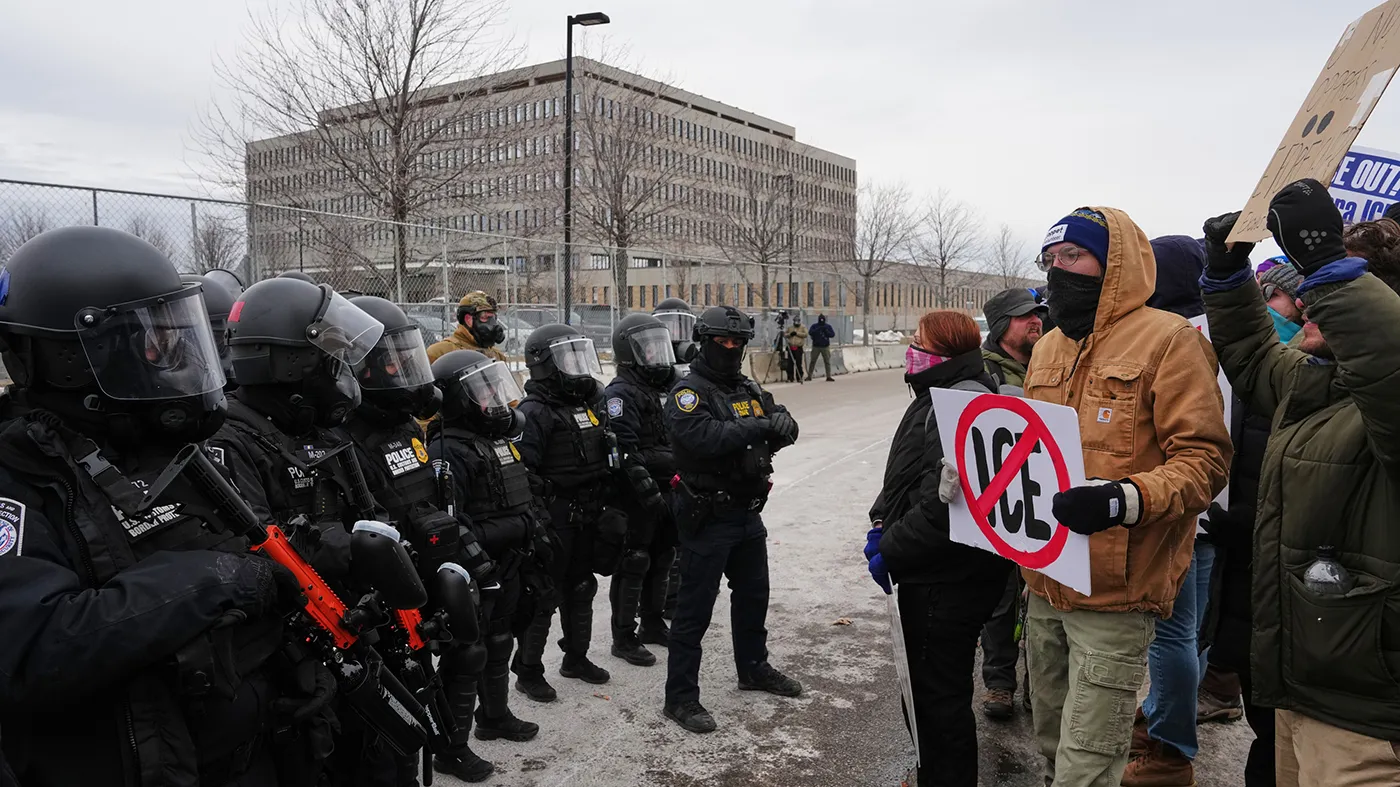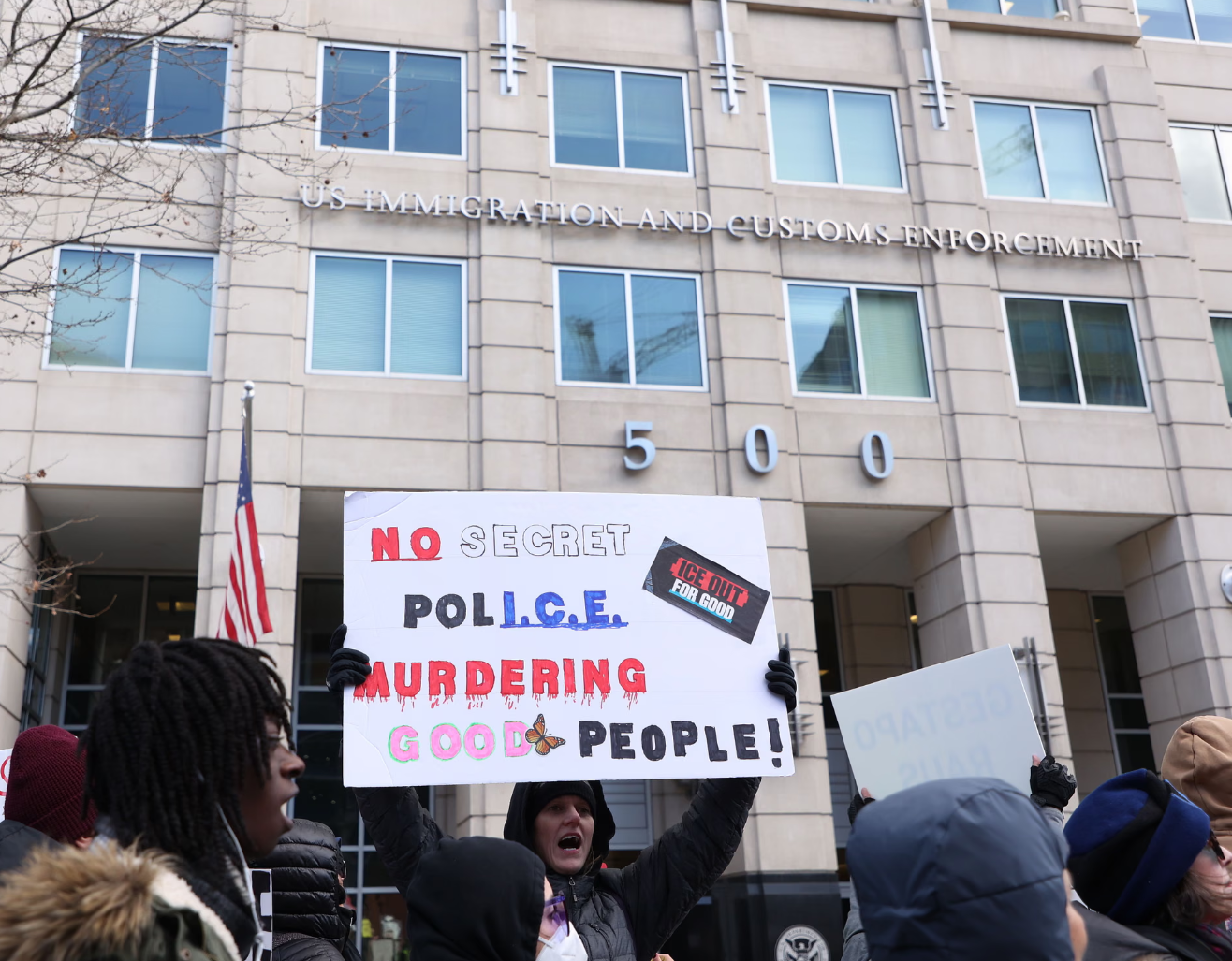ATLANTA — In the latest public rebuke of Georgia’s controversial 2021 voting law, dozens of Black students and activists marched through the heart of historic Morehouse College on Saturday in an effort to push back on what they call “anti-voting” measures in Georgia and other states.
Since 2021, SB 202 — also known as the Election Integrity Act — has made it illegal in Georgia for anyone to hand a hot or thirsty person a bottle of water while standing in line to vote. Those participating at Saturday’s rally cited SB 202 as one of many “inhumane laws that attempt to suppress the vote for Black and brown people,” said Nicole Carty, the executive director of Get Free, a Gen Z- and millennial-led movement that focuses on social justice.
“It is so visibly dehumanizing to actually criminalize such an act of humanity and dignity,” she said. “It really exemplifies the broader inhumanity and inequality of all these voter laws that are happening.”
Carty added: “It’s not just about not being able to hand out water. Many of the most insidious components of these anti-voter laws are deep in the bureaucracy and Jim Crow. So, we’re using it to shine a light on what is dehumanizing about these laws.”
SB 202 is a 98-page series of election measures that bar officials from sending out unsolicited absentee ballot request forms, minimize the use of ballot drop boxes, allow for purging registered voters from voting lists and prohibit handing out food or water to voters within 150 feet of a polling place or within 25 feet of a voter standing in line, among other restrictions. Violators can be charged with a misdemeanor offense, punishable by up to 12 months in jail and a $1,000 fine.
At a rally prior to the march, under the shadow of the Martin Luther King statue in the plaza of the international chapel named after the iconic civil rights leader, speakers railed against SB 202, citing it as a “discriminatory and immoral” attack against Democratic precincts that often have long lines to cast ballots.
Republicans in Georgia who passed the bill said it prohibits attempts to influence voters just before they reach the ballot box. They also cited food trucks parked outside polling places, like during the 2020 U.S. Senate runoffs and presidential election. Gov. Brian Kemp said the law would “ensure elections in Georgia are secure, fair and accessible.”
While the crowd at Morehouse was small in comparison to other political events, the “importance of what we’re doing here and what this means is huge,” Carty said.
Matthew Johnson, the Georgia organizing manager of Faith in Public Life Action, told the crowd: “In 2020, there were people standing in line five, six, seven hours to vote. There were people to come and give them life-sustaining materials such as food and water. Now, imagine seeing the problem as the food and water and not the long wait for hours. And imagine then being so bold as to try to convince us that this was about protecting the integrity of the election.”
Get Free, the Atlanta NAACP and the advocacy groups Collective Renaissance Guild, Georgia ADAPT and New Disabled South collaborated to organize the event on a day when Vice President Kamala Harris, former President Barack Obama and former first lady Michelle Obama are in Atlanta.
“There’s a lot going on here and it’s all for the good,” Carty said. “This is a consequential election and everyone who wants to vote should not have a problem voting — or being supplied water when they need it.”
“We are in the cradle of the Civil Rights Movement and the cradle of voter suppression,” said Gerald Griggs, president of the Georgia conference of the NAACP. “It is important that we dramatize what is at stake. Our ancestors fought, led and died for this most precious right that they are trying to strip away from us. So, in this moment, we want to say that we are not going back.”
The gathering also focused on the rights of disabled voters. Dom Kelly, executive director of New Disabled South, said he stood in line for 11 hours during the last election. In Randolph County, Georgia, which is predominantly Black, Kemp “attempted to close nine of 13 polling places rather than try to improve accessibility for disabled voters,” Kelly said. “Black voters would be suppressed on the back of disabled voters. This has been going on and going on for too long.”
Carty said it is too late for any changes to be made for the Nov. 5 election; early voting has already started in record fashion in Georgia. But their organizing is laying the groundwork for future action.
“The Voting Rights Act has been so attacked,” she said. “We really need federal action to actually repeal these laws that are happening all across the country. But in the meantime, what we can do is mobilize a mass against Jim Crow 2.0 and also make sure other Americans know the strategy around trying to throw out these votes inside of Black and brown [precincts], so that if something squirrelly goes down after Election Day, they won’t fall for it.”




